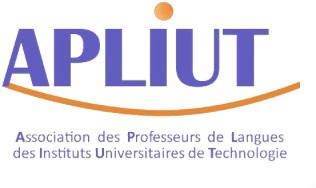|
COMPETENCY-BASED APPROACH FOR LANGUAGE FOR SPECIFIC PURPOSES Périgueux, June 1 to 3, 2023 The competency-based approach is an educative framework that places learners at the center of their learning and aims to develop the competencies (or skills) related to the profession in which they are trained. Originating in the world of industry in the United States in the 1960s, this approach was hailed for its clear break from transmissive teaching methods. In the contemporary landscape, the notion of “competency” or “competencies” in the plural, remains difficult to define satisfactorily (Boutin, 2004). Are they abilities or skills (as for a doctor or a teacher) or are they objectives to be reached and performance standards? In a language teaching-learning context and according to the recommendations of the Council of Europe (2001, p. 82-101), a distinction should be made between general competencies (declarative knowledge, skills/know-how, existential competence, ability to learn) and communicative language competencies (linguistic, sociolinguistic and pragmatic). As for their application in the context of Language for Specific Purposes, teachers and learners are expected to adapt these recommendations and shape them according to the needs of the target profession, in line with an action-oriented perspective (CEFR, 2001, p. 15), which recommends a link between academic tasks and future professional tasks that the learner will have to perform in the foreign language. As an innovative approach in higher education, the competency-based approach focuses more “on the demonstration of knowledge rather than the knowledge itself” (Boutin, 2004, p. 29). Moreover, while literacy skills (reading, writing) have been worked on for two centuries (Romero, 2017), “21st century skills” and particularly digital and multimodal literacies (see Romero, 2017; Dede, 2010) seem to be becoming increasingly essential with the wide availability of digital tools and the standardization of educational technologies (Pellerin, 2017). In the Institut Universitaire de Technologie (IUT), with the transition from the DUT to the BUT, the notion of competency is at the heart of national programmes: “a competency is a “complex knowledge-action, based on the mobilization and effective combination of internal and external resources within a family of situations”” (Tardif, 2006, p.22). The resources designating the knowledge, know-how and interpersonal skills are available to individuals and allow them to apply the competency within a professional situation. From this point of view, languages are only one resource to be considered in the acquisition and consolidation of a competency, a resource that can be rallied through Situations of Learning and Evaluation, in other words, authentic professional tasks designed to develop and evaluate competencies. These Situations of Learning and Evaluation are like the target situations advocated by the pioneers of English for Specific Purposes (Hutchinson & Waters, 1987, p. 59). From the beginning, Language for Specific Purposes has paid attention to the specific needs of learners. The competency-based approach unites the different currents that navigate through the field of Teaching and Learning of Language for Specific Purposes, from an initial linguistic approach (knowledge) to a functional approach (know-how) and finally towards a cognitive approach (interpersonal skills) that is centered on learners and based on problem solving, with the objective of making them active in meaningful tasks that encourage their involvement in the activity. By considering Situations of Learning and Evaluation as global simulations, which give learners the opportunity to put into practice the knowledge, know-how and interpersonal skills of the professional world, language teachers are better able to contextualize learning. Since the de-compartmentalization of subject areas, the links between language teaching resources and those of core professional subjects represent a challenge for teachers of Languages for Specific Purposes. Finally, a competency-based approach should be perceived not only as a pedagogical device chosen by the teacher; learners should also recognise the need for developing and mastering required competencies. How can we raise the question of a competency-based approach without first considering the learners’ ability to think and act for themselves (Lahire, 2005) and to take charge of their own learning (Holec, 1981)? In other words, how can such an approach be conceived without considering the notion of learner autonomy in all its complexity (Little et al, 2017)? The 43rd APLIUT Conference invites teachers and researchers to explore issues related to the competency-based approach in its broadest sense. We will be interested not only in the approach itself (Tardif, 2006), but also in the uses that teachers make in their own respective teaching sectors to work on the competencies identified. These could be specialized language skills in the Lansod (Languages for Specialists in Other Disciplines) sector, but also professional skills as in the IUT. Paper proposals should deal with at least one of the following strands: Strand 1: Identification of Competencies: How can learner needs be identified when teaching a language or a Language for Specific Purposes? What complex knowledge and competencies are needed in contemporary professional situations? Are our training courses simply adapting to the demands of the professional world, or do they entail a broader action, which includes, for example republican or civic values? What about learner autonomy? Strand 2: Competency Training: What pedagogy should be used to train learners to develop the competencies identified? What training frameworks and teaching strategies should be employed to develop these skills? What place should languages have in Situations of Learning and Evaluation? How can we combine the necessary knowledge and/or skills with the ability to act? What can active pedagogies (viz. project-based learning, learning by doing) bring to a relevant competency-based approach? What posture should teachers who rely on this approach adopt for their classes? How compatible is learner autonomy with a competency-based approach? Strand 3: Competency Assessment: How can the competencies identified and taught be assessed? What kind of evaluation should be applied to Learning and Evaluation Situations? Do learners perform better with the competency-based approach? Is language learning better if it is rooted in the learner’s specialization? How much autonomy do learners have in their own evaluation? What kind of self-assessment should be considered in the competency-based framework (e.g., portfolio)? References
|


